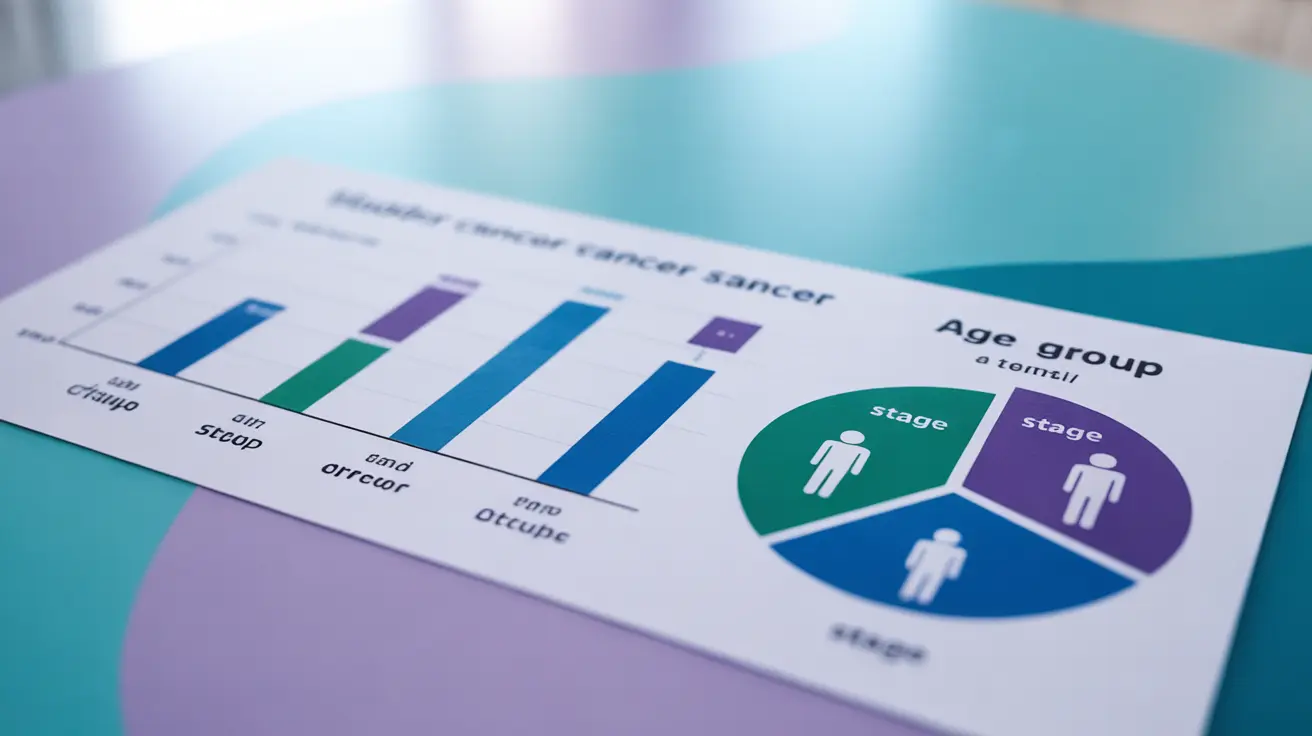A bladder cancer diagnosis can feel overwhelming, and understanding survival rates is crucial for patients and their loved ones. While these statistics provide important insights, it's essential to remember that they are averages based on past data and individual outcomes can vary significantly based on multiple factors.
This comprehensive guide explores bladder cancer survival rates across different age groups, stages, and circumstances, helping you better understand what these numbers mean and the factors that can influence them.
How Age Affects Bladder Cancer Survival Rates
Bladder cancer survival rates typically vary among different age groups, with younger patients generally showing more favorable outcomes. Patients diagnosed before age 50 often have higher five-year survival rates, while those diagnosed at more advanced ages may face additional challenges.
Several factors contribute to these age-related differences:
- Earlier detection in younger patients
- Better overall health status
- Stronger ability to tolerate aggressive treatments
- Fewer competing health conditions
Understanding Cancer Stages and Survival Rates
The stage at which bladder cancer is diagnosed plays a crucial role in determining survival rates. Early-stage cancers generally have more favorable outcomes:
- Non-muscle-invasive (Stage 0 and I): Higher survival rates
- Muscle-invasive (Stage II and III): Moderate survival rates
- Metastatic (Stage IV): Lower survival rates
Regular screening and early detection can significantly improve survival chances by catching the cancer before it advances to later stages.
Impact of Overall Health on Survival
Pre-existing health conditions can significantly influence bladder cancer outcomes. Common factors affecting survival rates include:
- Cardiovascular health
- Diabetes management
- Respiratory conditions
- Immune system function
- Overall physical fitness
Treatment Options and Their Effect on Survival
The type and effectiveness of treatment can greatly impact survival rates. Common treatment approaches include:
- Surgery (including partial or complete bladder removal)
- Chemotherapy
- Immunotherapy
- Radiation therapy
- Combination treatments
The chosen treatment path depends on various factors, including cancer stage, overall health, and patient preferences.
Improving Outcomes Through Lifestyle Changes
Several lifestyle modifications can potentially improve outcomes after diagnosis:
- Maintaining a healthy diet rich in fruits and vegetables
- Regular physical activity as approved by healthcare providers
- Smoking cessation
- Stress management
- Building a strong support network
Frequently Asked Questions
What is the five-year survival rate for bladder cancer by different age groups?
Five-year survival rates vary significantly by age group. Generally, younger patients (under 50) have higher survival rates, often exceeding 80%, while older adults may have lower rates due to various health factors and treatment tolerance.
How does the stage of bladder cancer at diagnosis affect survival rates?
Cancer stage at diagnosis is a crucial determinant of survival rates. Early-stage (non-muscle-invasive) cancers have significantly higher survival rates, often above 95%, while advanced-stage cancers may have lower survival rates due to the cancer's spread and complexity of treatment.
Can pre-existing health conditions impact bladder cancer survival chances?
Yes, pre-existing health conditions can significantly affect survival chances. Conditions like heart disease, diabetes, or respiratory problems may limit treatment options and affect the body's ability to respond to cancer treatments.
Why do older adults tend to have lower bladder cancer survival rates compared to younger patients?
Older adults often have lower survival rates due to multiple factors: they may have more pre-existing health conditions, reduced ability to tolerate aggressive treatments, and potentially delayed diagnosis. Their immune systems may also be less robust in fighting cancer cells.
What lifestyle changes or support can help improve outcomes after a bladder cancer diagnosis?
Key lifestyle changes that can improve outcomes include maintaining a healthy diet, staying physically active as permitted, quitting smoking, managing stress, and building a strong support network. Regular medical follow-up and adherence to treatment plans are also crucial for better outcomes.




